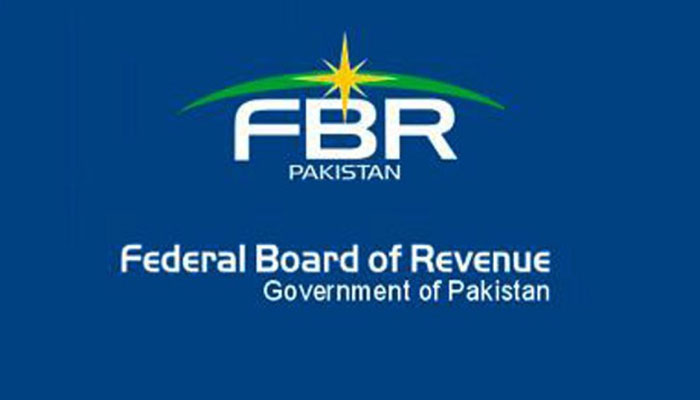Reforms body allows: FBR to utilise data integration identifying taxpayers
ISLAMABAD: The Institutional Reforms Body (IRB), led by Dr Ishrat Hussain, has assigned the FBR to utilise automation for integration of data to identify potential taxpayers, while the body is also considering to keep tax machineries within the government’s domain to protect their privileges.
“The Ministry of Law will be consulted to assure the privileges of FBR officials remained intact after granting autonomy such as on the pattern of State Bank of Pakistan,” Dr Ishrat Hussain told The News on Friday. He said the FBR was told to carry out reforms in phases, and some steps of automation and integration of taxes would be done in the coming budget, while the next phase from July-December 2020, would outline to ensure effective implementation.
On the issue of autonomy, the FBR officials had already rejected the proposal and told to retain the current status of tax collection machinery as a federal government department. The FBR officers had proposed that the re-structured tax authority after inclusion of provincial taxes may be appropriately named ‘Pakistan Revenue Board’ instead of Pakistan Revenue Authority.
The cabinet had approved the recommendations of the Institutional Reform Cell of Prime Minister’s Office, presented in its report on “Reorganising the federal government,” hereinafter, referred to as task force report. Though, the cabinet did not approve abolishing the FBR and replacing it with the Pakistan Revenue Authority, the FBR was placed in the list of autonomous bodies in the report. This segment should be removed initially to place the FBR as an executive department.
There is a divergent opinion stated by the World Bank as the World Bank project report “Pakistan raises revenue” also envisages the FBR as a semi-autonomous revenue authority. In this backdrop, the Para-F of the proposed plan of restructuring of FBR as envisaged in the minutes of the meeting held on October 3, 2019, outlined the establishment of the Pakistan Revenue Authority as an autonomous body. After detailed dialogues, the stakeholder input was sought from consultative committees.
Globally, the tax collection mechanism is a state function, which cannot be delegated to an autonomous body hence, the African region has a semi-autonomous structure in place. The FBR must be differentiated from the State Bank of Pakistan, which is a regulatory authority. It should also be distinguished from the SECP and other autonomous institutions as it is primarily due to the fact that the revenue authority applies the quasi-judicial powers under the criminal procedures code and performs the prosecution functions as well, which requires the writ and enforcement of the federal government law.
As the levy and collection of taxes is hardly possible without the authority of the federal government, the reduction of tax administration to a revenue authority, will ultimately lead to diminishing taxpayers’ compliance, increased malpractices and decrease in revenue collection. Therefore, it is strongly recommended that the status of the future tax administration be maintained as an attached department and career progression of the IRS cadre officers should not be compromised by lateral entry of professionals at any stage; however, there is a growing need for sectoral analysis and legal experts in the tax administration. The chief commissioners at the level of regional tax offices may hire the services of the professionals for assistance in tax assessments as support staff required at unit level.
-
 18-month Old On Life-saving Medication Returned To ICE Detention
18-month Old On Life-saving Medication Returned To ICE Detention -
 Cardi B Says THIS About Bad Bunny's Grammy Statement
Cardi B Says THIS About Bad Bunny's Grammy Statement -
 Major Hollywood Stars Descend On 2026 Super Bowl's Exclusive Party
Major Hollywood Stars Descend On 2026 Super Bowl's Exclusive Party -
 Sarah Ferguson's Silence A 'weakness Or Strategy'
Sarah Ferguson's Silence A 'weakness Or Strategy' -
 Garrett Morris Raves About His '2 Broke Girls' Co-star Jennifer Coolidge
Garrett Morris Raves About His '2 Broke Girls' Co-star Jennifer Coolidge -
 Winter Olympics 2026: When & Where To Watch The Iconic Ice Dance ?
Winter Olympics 2026: When & Where To Watch The Iconic Ice Dance ? -
 Melissa Joan Hart Reflects On Social Challenges As A Child Actor
Melissa Joan Hart Reflects On Social Challenges As A Child Actor -
 'Gossip Girl' Star Reveals Why She'll Never Return To Acting
'Gossip Girl' Star Reveals Why She'll Never Return To Acting -
 Chicago Child, 8, Dead After 'months Of Abuse, Starvation', Two Arrested
Chicago Child, 8, Dead After 'months Of Abuse, Starvation', Two Arrested -
 Travis Kelce's True Feelings About Taylor Swift's Pal Ryan Reynolds Revealed
Travis Kelce's True Feelings About Taylor Swift's Pal Ryan Reynolds Revealed -
 Michael Keaton Recalls Working With Catherine O'Hara In 'Beetlejuice'
Michael Keaton Recalls Working With Catherine O'Hara In 'Beetlejuice' -
 King Charles, Princess Anne, Prince Edward Still Shield Andrew From Police
King Charles, Princess Anne, Prince Edward Still Shield Andrew From Police -
 Anthropic Targets OpenAI Ads With New Claude Homepage Messaging
Anthropic Targets OpenAI Ads With New Claude Homepage Messaging -
 US Set To Block Chinese Software From Smart And Connected Cars
US Set To Block Chinese Software From Smart And Connected Cars -
 Carmen Electra Says THIS Taught Her Romance
Carmen Electra Says THIS Taught Her Romance -
 Leonardo DiCaprio's Co-star Reflects On His Viral Moment At Golden Globes
Leonardo DiCaprio's Co-star Reflects On His Viral Moment At Golden Globes




